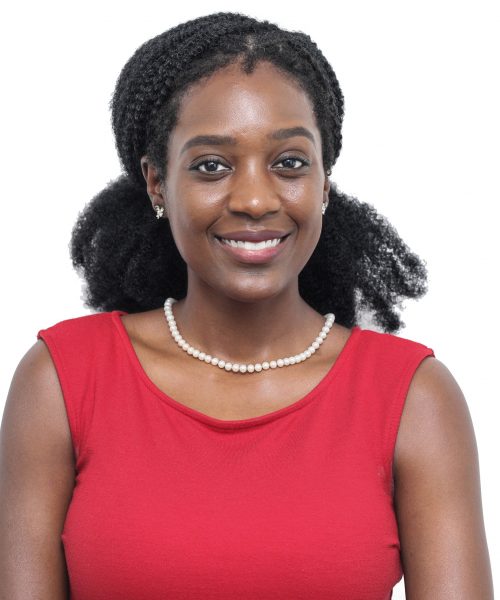
TP SPOTLIGHT:
QWAMEL HANKS,
NUTRITION ASSOCIATE ADVISOR
"Know yourself, have a plan, and be able to articulate it. Know what you want professionally, at least in the next several years of your life, so that you can continuously and deliberately work towards goals."
How did you enter the field of global health?
Qwamel: As an undergraduate student at the University of Florida, I was interested in the intersection of food and anti-hunger issues, as well as with program management. I began as a business major, but later switched to a focus on human nutrition and food sciences to gain a more technical understanding of the field, while sustaining the business portion of my education through a business minor. My new course direction helped me identify an interest in international nutrition and hunger issues, so I began to focus on gaining as much international experience as possible, including community service, a youth agriculture summit, and short research and volunteer experiences, because work abroad is often a prerequisite to participation in global health career fields.
Once I graduated, I spent the first five to six years of my career working in domestic nutrition in order to build my technical skillset, and then decided to pursue my Masters of Global Health Program Design, and Monitoring & Evaluation at George Washington University. During my studies, I chose to conduct my Graduate Practicum experience in Ghana, and while abroad, I applied to my current position as Nutrition Associate Advisor with GHTP.
What does a typical day look like for you at USAID?
Qwamel: Typically, my days are split evenly between administrative and logistics work and technical advisory. On the administrative side of things, there is a lot of scheduling, developing presentations, drafting talking points for stakeholder engagements, and attending meetings. The technical support I provide includes providing nutrition expertise to USAID teams on the ground in five west and central African countries, program strategy reviews, and activity design.
What was the most significant experience you faced early in your career?
Qwamel: I learned very early on that prior international work and/or research experience is very important if your goal is to work in global health, or in any field in which work spans across borders. Once I graduated and started applying to jobs, I found it challenging to acquire the international experience I needed to be competitive for many of the positions in international nutrition I applied for. Much of my prior international experience was short-term engagements, which were not as attractive as longer periods of work abroad. I did apply and was accepted as a Peace Corps volunteer, which I hoped among other things would serve as this necessary international experience, but my cohort was canceled before we departed for our placements. So while not completely prohibitive, a lack of extensive experience working abroad was a challenge early in my career. My advice to those seeking careers in global health is to take every opportunity that you can to work abroad as early and often as you can!
In your opinions, what are the two most important skills to have in the field of global health?
Qwamel: I have found both tactfulness and organizational skills to be absolutely essential in this field. Tact can get you far – being diplomatic, empathetic, communicative, and able to effectively work with people from a variety of backgrounds allows for successful collaboration. On the topic of organizational skills – USAID is a large, complex agency with many interacting systems and people. Having the ability to organize yourself, always remain punctual, and help your team members stay organized will help you go a long way.
How have you found mentors and/or opportunities to network as a global health professional?
Qwamel: GHTP provides mentorship and networking opportunities like brownbag lunches that help with the sometimes-tedious networking process. I have also sought out more natural mentorships that can form on the job. Additionally, I’ve taken advantage of employee resource groups (ERGs) that USAID has for different subsects of professionals who work at the Agency, and there are always happy hours and listservs for like-minded professionals across Washington, D.C. – you just have to go and find them and be willing to engage in your free time.
Do you have any advice for current global or public health students?
Qwamel: Know yourself, have a plan, and be able to articulate it. Know what you want professionally, at least in the next several years of your life, so that you can continuously and deliberately work towards goals.
